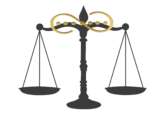
Maintenance & the Golden Years
The Government has recently stated that over 100 persons have been abandoned in the hospital by their family members. Unsurprisingly, the abandoned individuals include senior citizens. Senior citizens are not minors, and some say they ought to have made financial provision for their golden years. However, a senior citizen’s need for assistance with maintenance is not limited to a need for financial generosity. For money or otherwise, who can senior citizens turn to?
It is not uncommon for persons to make provision for their retirement only to realize it is simply not enough. The law disagrees with those who think senior citizens should be limited to what they can provide for themselves. Neither are senior citizens generally limited to the benefits they can receive from the government.
The law imposes a legal obligation on adult children to maintain their parents who are in need of assistance because of their age, physical or mental illness or disability.
If not your adult children, then who?
Adult children are generally excused from assisting their parents only where they have passed on, or the adult children are unable to assist due to their own physical or mental illness, or disability.
In a previous article, we highlighted that while grandparents often volunteer to assist with maintaining their grandchildren, they are in fact legally obligated to do so if the circumstances justify it. Similarly, grandchildren are legally obligated to maintain their grandparents. This legal obligation of grandchildren only arises where their own parent is unable to do so, due to their own physical or mental illness, or disability.
Your account overfloweth but your mental health declineth
How far your mental health has declined is important. We saw recently in the news where children sought control of a parent’s finances on the basis that the parent was mentally unsound and they needed to take charge of the parent’s maintenance. The parent opposed the children being given control and insisted there were no mental health issues. Based on a court ordered medical report, the parent was found to be mentally sound. What if the medical report had said otherwise?
Under our mental health law, children are permitted to approach the Court for permission to ensure their mentally ill parent is properly maintained from the parent’s finances. However, children rank second in priority for approaching the Court. Permission is usually given to the nearest relative who ordinarily resides in Jamaica. This is usually a husband or wife. The order of priority for persons who ordinarily reside in Jamaica who can approach the Court is below:
- husband or wife
- daughter or son
- father
- mother
- brother or sister
- grandparent
- grandchild
- uncle or aunt
- nephew or niece
Being classified as one of the above persons, and being ordinarily resident in Jamaica is not a guarantee that the Court will approve you. There are other considerations such as whether the relationship is of the whole blood or half blood, and who is the elder or eldest. Preference is usually given to the whole blood, and the elder or eldest relative in the classifications. In relation to a husband and wife, they must not have been permanently separated from each other or deserted by the mentally ill husband, or wife.
Government Assistance
There are also several government agencies which offer assistance to senior citizens. The National Council for Senior Citizens provides in-home help through nurse aides, and access to various goods and services at discounted prices. You may also consider the Jamaica Drug for the Elderly Programme which provides subsidies for essential drugs which treat chronic illnesses.
Undoubtedly, we would all like to have an abundance of funds during our retirement years, however life happens and persons find themselves dependent on others. This is certainly one scenario in which the persons involved are better off knowing their right to be maintained, and their obligation to maintain.
Disclaimer by the author: Nothing in this article is to be taken as legal advice. You should consult an attorney regarding your specific case. All liability with respect to actions taken or not taken based on the contents of this article are hereby expressly disclaimed.
